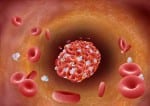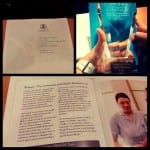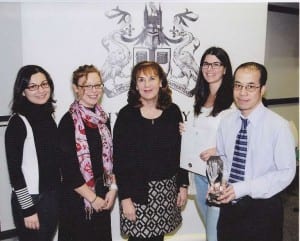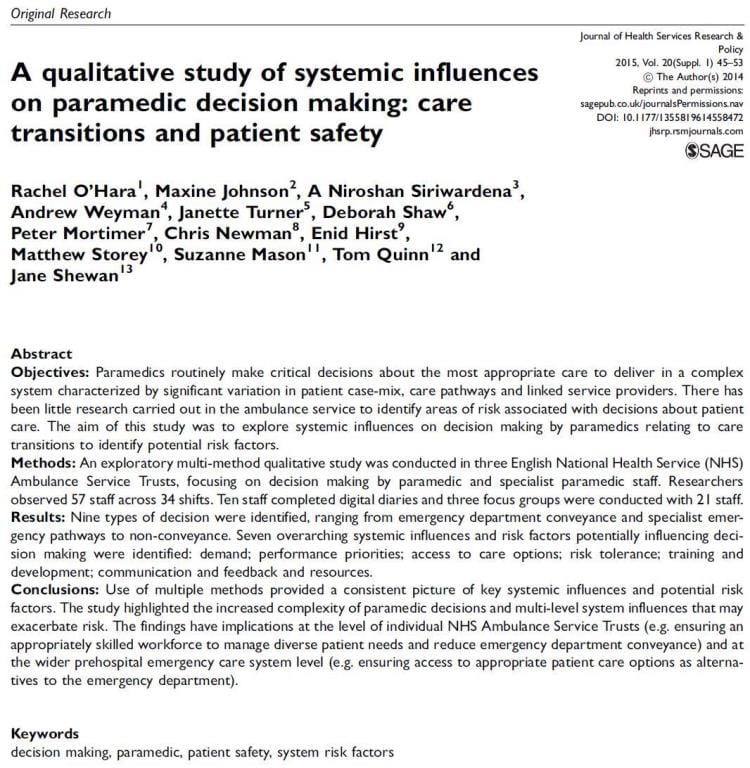 The Lincoln Institute for Health (LIH), of which the Community and Health Research Unit is a constituent group, was judged winner in the University of Lincoln team award for achievement in enterprise. Profs Nick Blagden (left) and Steve McKay (right) pictured below received the award on behalf of the LIH. The LIH is the first cross-college interdisciplinary institute at the University of Lincoln and developed through discussion between a members of the Colleges of Science and Social Sciences with support from Pro Vice Chancellors and heads of the College of Social Sciences and Science, Profs Sara Owen and Andrew Hunter and the executive including Prof Mary Stuart and Prof Ieuan Owen.
The Lincoln Institute for Health (LIH), of which the Community and Health Research Unit is a constituent group, was judged winner in the University of Lincoln team award for achievement in enterprise. Profs Nick Blagden (left) and Steve McKay (right) pictured below received the award on behalf of the LIH. The LIH is the first cross-college interdisciplinary institute at the University of Lincoln and developed through discussion between a members of the Colleges of Science and Social Sciences with support from Pro Vice Chancellors and heads of the College of Social Sciences and Science, Profs Sara Owen and Andrew Hunter and the executive including Prof Mary Stuart and Prof Ieuan Owen.
 Academics realised through that through their common interest in health-related research they had a unique opportunity to develop the an Institute where researchers and clinicians could better understand the healthcare needs of patients and populations; work closely with patients, public, and health and social care partners locally, regionally and nationally to find solutions to address these needs in a way that would be more relevant; test these solutions with patients and professionals enabling them to maximise future uptake and impact of our research.
Academics realised through that through their common interest in health-related research they had a unique opportunity to develop the an Institute where researchers and clinicians could better understand the healthcare needs of patients and populations; work closely with patients, public, and health and social care partners locally, regionally and nationally to find solutions to address these needs in a way that would be more relevant; test these solutions with patients and professionals enabling them to maximise future uptake and impact of our research.
 The Institute connects research from ‘cell to community’, from researchers working on cellular mechanisms of disease, through design of new drugs and drug delivery methods, novel tests and treatments using computers and engineering, health prevention and promotion through sport and exercise, right through to developing and testing drugs and interventions in health settings in primary care, ambulance services and hospitals.
The Institute connects research from ‘cell to community’, from researchers working on cellular mechanisms of disease, through design of new drugs and drug delivery methods, novel tests and treatments using computers and engineering, health prevention and promotion through sport and exercise, right through to developing and testing drugs and interventions in health settings in primary care, ambulance services and hospitals.
 The research groups involved are Molecular Basis of Disease (MBOD), Drug Design and Delivery (DDAD), Laboratory of Vision Engineering (LOVE), Lincoln Centre for Social Computing (LiSC), Perception and Cognition (PAC), Health Advancement Research Team (HART), Policy Studies Research Centre (PSRC), and CaHRU. Other groups are likely to join the Institute including from the College of Art, Architecture and Design. The institute has also had strong support from health service partners: United Lincolnshire Hospitals, East Midlands Ambulance Service, Lincolnshire Community Health Services, and Lincolnshire Partnership Foundation NHS Trusts. The new director of the Institute, Professor Chris Bridle, will start at the university in January 2015.
The research groups involved are Molecular Basis of Disease (MBOD), Drug Design and Delivery (DDAD), Laboratory of Vision Engineering (LOVE), Lincoln Centre for Social Computing (LiSC), Perception and Cognition (PAC), Health Advancement Research Team (HART), Policy Studies Research Centre (PSRC), and CaHRU. Other groups are likely to join the Institute including from the College of Art, Architecture and Design. The institute has also had strong support from health service partners: United Lincolnshire Hospitals, East Midlands Ambulance Service, Lincolnshire Community Health Services, and Lincolnshire Partnership Foundation NHS Trusts. The new director of the Institute, Professor Chris Bridle, will start at the university in January 2015.












